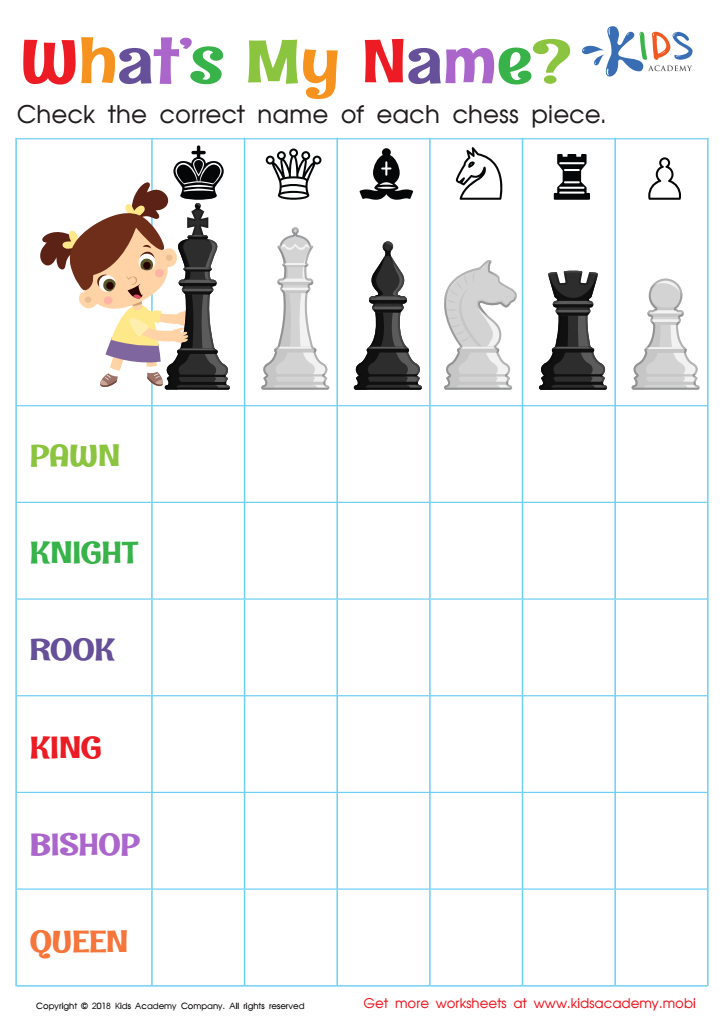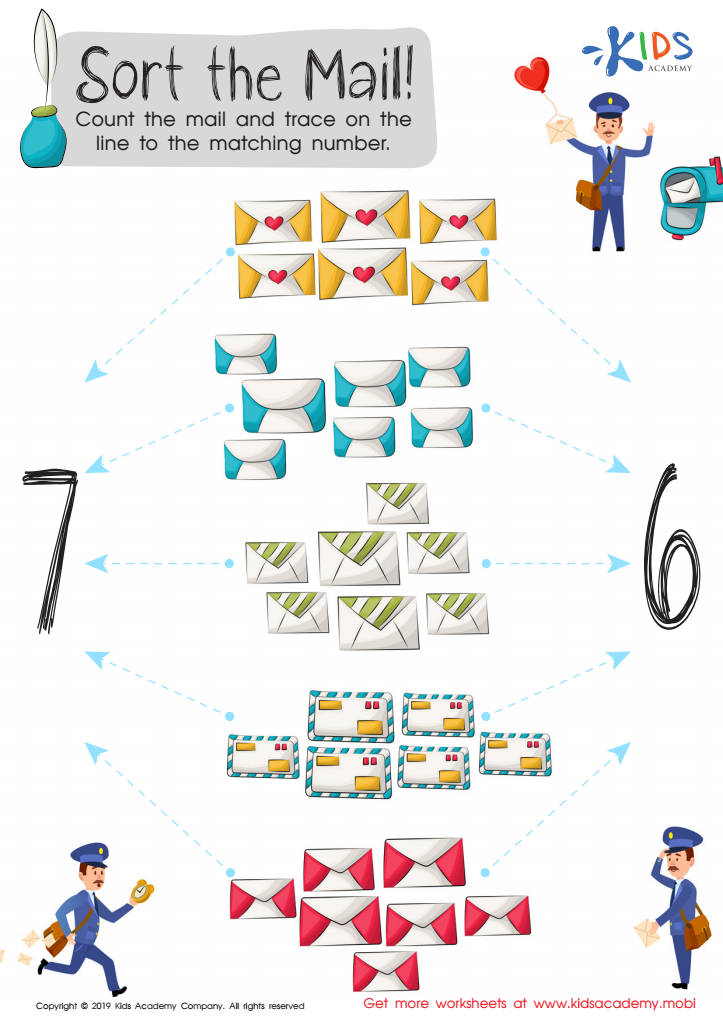Letter recognition Math Worksheets for Ages 3-9
5 filtered results
-
From - To
Our Letter Recognition Math Worksheets for Ages 3-9 provide a fun, engaging way for early learners to build essential math and literacy skills. Carefully designed for young minds, these worksheets blend letter identification with basic math concepts, such as counting and simple addition. Each worksheet is filled with vibrant illustrations and interactive activities tailored for preschool through early elementary grades. Perfect for both classroom and home use, these tools support children in recognizing letters, understanding their sounds, and developing foundational math skills. Help your child or students embark on an exciting learning journey with our expertly crafted resources!


What's My Name? Worksheet


Sort the Mail Worksheet
Parents and teachers should care deeply about letter recognition and foundational math skills for children between the ages of 3-9 because these skills are the cornerstones of literacy and numeracy. Letter recognition is the ability to identify and name the letters of the alphabet, both visually and auditorily. This skill is crucial as it directly impacts a child's ability to read and write. Early mastery of letter recognition makes decoding words easier, leading to better comprehension and a more enjoyable reading experience. As children build their letter knowledge, they become more confident readers, which fosters a lifelong love of learning.
Mathematics in the early years goes beyond just counting skills. Foundational math includes recognizing numbers, understanding quantities, basic addition, and subtraction, and grasping simple patterns and shapes. These skills contribute to a child's logical thinking and problem-solving abilities. Proficiency in early math is a strong predictor of later academic success, not just in mathematics but across various subjects. Early engagement with math concepts also helps children develop critical thinking and analytical skills, which are essential for navigating daily life.
By ensuring that children are proficient in these fundamental areas, parents and teachers provide them with the tools they need to excel academically and socially, building a strong foundation for their future education and personal development.




 Assign to My Students
Assign to My Students









.jpg)










